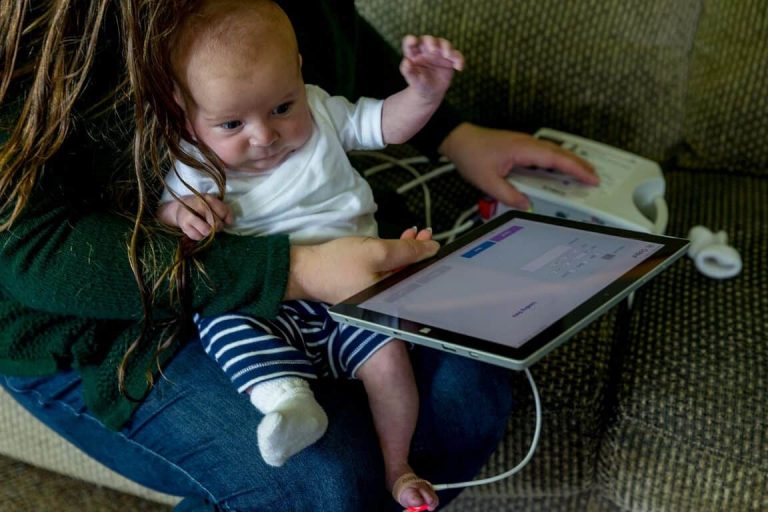When most casual tech observers think of Microsoft’s Surface products, images of Office, Excel Sheets, Cortana, and Photoshop typically flood the public conscious thanks in large part to the company’s marketing spend. However, there a niche’s the Surface product line are filling day-to-day that goes relatively uncelebrated such as providing a modern educational resource for student and teachers, robust point-of-sales references for salespeople, or even flight aids for pilots.
Adding to the list of niche (but very important) scenarios the Surface helps to address is the support of Shirali’s Cardiac High Acuity Monitoring Program. The mother of a child suffering from the rare disease, Hypoplastic Left Heart Syndrome (HLHS), shared her experience with the CHAMP program and how the Surface Pro 3 helped to monitor her child’s day to day conditions while offering near-instant analysis for doctor’s miles away.
Autumn Parkison was introduced to an app created by Dr. Girish Shirali, a pediatric cardiologist at Children’s Mercy Hospital in Kansas City, that uses Windows 10 and Surface Pro 3 as its backbone to help her easily monitor her child when she attended a support group for families dealing with HLHS.
Shirali’s Cardiac High Acuity Monitoring Program, or CHAMP, consists of a Microsoft Surface 3 tablet with the Windows 10 operating system, connected to a database that sits in the Microsoft Cloud. The family enters the baby’s information in the app throughout each day, and the figures are instantly analyzed in the cloud. If there are any measurements outside healthy cardiac parameters, such as oxygen saturation that’s too low or high, the baby’s medical team is automatically alerted. There’s also an “I’m concerned” box parents can click that will immediately page the nurse.
Before the addition of the Surface Pro 3, parents of children with HLHS had to undergo the laborious, time intensive, and sometimes inaccurate process checking vital signs and reporting back to doctors on a weekly process.
It was a reactive model,” says Lori Erickson, a nurse practitioner and the clinical coordinator for the CHAMP program. “Now it’s become proactive. I can see every piece of data within two minutes as it goes from the tablet to the cloud, and even if there are no alerts, we look through the reports every day. We can catch things before parents do, because we’re the ones who are medically trained, and that’s the way it should be, to reduce the burden on the parents.”
So far the Surface Pro 3, Windows 10, and the CHAMP program has been successful for 62 patients in the Kansas City area and is current use among 16 families in the Seattle region. According to the families who are participating in the CHAMP program, it is not only helping to save lives but reduce medical costs, which those who have had to endure a long-standing illness or disease know could be half the battle.
To learn more about the Parkison family, HLHS, or the CHAMP program, visit the Microsoft’s News Center blog for the inspiring story of innovations in the health care community.


